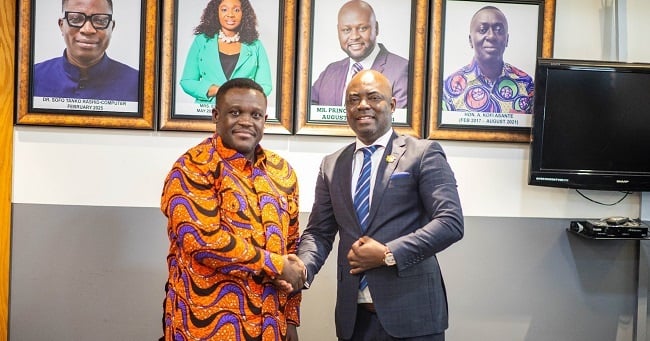The Minister for Communication, Digital Technology and Innovations, Samuel Nartey George, has unveiled a comprehensive strategy to enhance internet access, particularly in underserved rural communities. This initiative, announced during the introduction of Abdulaziz Mohammed as the Acting Deputy Administrator of the Ghana Investment Fund for Electronic Communications (GIFEC), emphasizes the crucial role of internet connectivity as a fundamental utility, akin to water and electricity. The Minister underscored the success of rural electrification programs as a model for community-driven development, asserting that internet connectivity should similarly transform rural communities into commercially viable hubs, fostering diverse businesses and activities. He expressed concern about the current challenges hindering rural telephony and outlined plans to restructure GIFEC into the Digital Economy and Innovation Development Fund, a move intended to strategically prioritize and improve internet services in rural areas.
The Minister’s vision centers on several key strategies to achieve widespread connectivity. Collaboration with telecommunication companies will be instrumental in demonstrating the commercial viability of rural sites, encouraging private sector investment and participation. Concurrently, improvements to existing infrastructure are planned to accommodate increased internet traffic and attract businesses, creating a sustainable digital ecosystem. Recognizing the importance of digital literacy, the initiative also prioritizes educating rural communities about the benefits and applications of digital technologies, thereby stimulating demand for these services and ensuring that residents can effectively utilize the improved connectivity. This multi-pronged approach aims to create a positive feedback loop, where improved infrastructure attracts businesses and users, leading to greater demand and further investment.
The revitalization of Community Information Centers (CICs) forms a crucial element of this strategy. These centers will be transformed into dynamic digital hubs, offering essential services to rural communities and serving as focal points for digital access and training. This transformation envisions CICs evolving beyond basic internet access points to become vibrant community resources equipped with modern technology and offering a wide array of services, thereby promoting digital inclusion and bridging the digital divide. These revitalized centers will play a key role in facilitating digital skills development and empowering local communities to fully participate in the digital economy.
Furthermore, the initiative includes the ambitious “One Million Coders Programme,” designed to equip young people in rural areas with essential digital skills. This program will provide training in coding, web development, and data forensics, fostering a pool of skilled digital professionals within these communities. By nurturing local talent, the program aims to create employment opportunities within the digital sector, further stimulating economic growth in rural areas. This focus on skills development not only empowers individuals but also creates a sustainable workforce capable of maintaining and expanding the digital infrastructure, ensuring long-term benefits for these communities.
The Minister’s plan also emphasizes collaborative partnerships. Working with telecommunication companies will be critical to demonstrate the commercial viability of rural internet services, attracting investment and ensuring long-term sustainability. This collaboration extends to engaging local communities in the planning and implementation process, ensuring that the initiatives meet their specific needs and foster local ownership. By fostering these partnerships, the government aims to create a shared responsibility for the success of the program, maximizing its impact and ensuring long-term viability.
Ultimately, the Minister’s vision is to bridge the digital divide and empower rural communities through enhanced internet access, digital literacy, and skills development. By treating internet access as a fundamental utility, this initiative aims to unlock the economic potential of rural areas, creating opportunities for businesses, entrepreneurs, and individuals. The comprehensive approach, encompassing infrastructure development, education, skills training, and community engagement, seeks to ensure that the benefits of the digital revolution are accessible to all, fostering inclusive and sustainable development across the nation. This ambitious plan reflects a long-term commitment to transforming Ghana’s digital landscape and empowering its citizens to thrive in the global digital economy.














